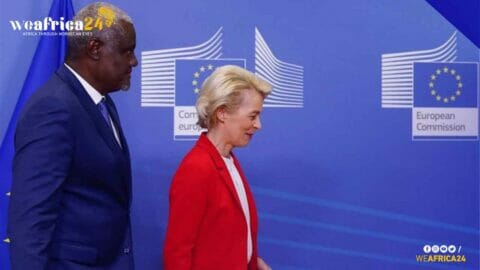The consequences of the Russian invasion of Ukraine are dominating relations between the European Union and the African Union. The two organizations were supposed to turn a new page in their relations for a “partnership of equals”. This was announced at the last EU-AU summit in Brussels in February.
However, the Russia-Ukraine war has changed the situation and made EU-AU relations more complicated. Indeed, no such summit is planned for 2023.
At a review meeting between the European Commission and the AU last November, it was agreed that the EU would start allocating funds for infrastructure investments under its Global Gateway strategy. 750 million over the next year, but this is still far less than what China is offering under its New Silk Roads initiative.
Inflation and the cost of halting wheat and grain imports have prompted African countries such as Egypt, Kenya, and Ghana to enter into bail-out agreements with the International Monetary Fund (IMF).
Russian influence in Ukraine is intensifying in several forms. On the one hand, the founder of fertilizer giant Eurochem has been courting officials of the African National Congress in South Africa to ease sanctions regimes.
Similarly, the EU’s high representative for foreign affairs, Josep Borrell, made his first trip this year to Morocco, the EU’s most important partner in Africa. Russian influence is part of the EU’s diplomatic agenda in the Sahel, but Morocco prefers to maintain good relations with Russia and adopts a policy of neutrality on this issue.
For example, the European Union has recently launched initiatives to combat what the European Commission calls Russian “disinformation” on social networks in the Sahel.







